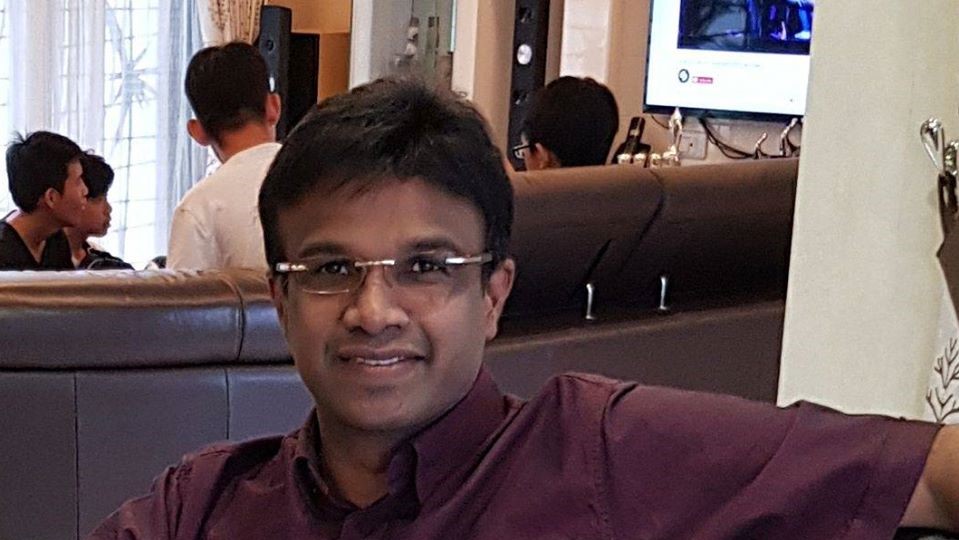KUALA LUMPUR, August 12 — Physician groups told the government that tax rebates and shifting private clinics to cheaper government offices were not feasible alternatives to raising general practitioners’ (GPs) consultation fees.
Medical Practitioners Coalition Association of Malaysia (MPCAM) president Dr Raj Kumar Maharajah pointed out that family doctors open their clinics in the community so that they’re easily accessible to the sick.
“No use opening up in government offices if no one is going to be there to get treated,” he told CodeBlue.
“Tax rebates only help if the clinics are treating enough patients, incurring in high taxes. Hence, this will not help much either. Reducing electric bills are negligible perks which don’t help much.”
Dr Raj Kumar insisted that private clinic GPs simply want their consultation fees, which have stagnated at RM10 to RM35 since 1992, to be harmonised with their hospital-based counterparts who charge between RM30 and RM125.
CodeBlue reported that a recent National Cost of Living Action Council (NACCOL) meeting, chaired by Domestic Trade and Consumer Affairs Minister Saifuddin Nasution Ismail, saw many people at the meeting objecting against raising private clinic GPs’ consultation fees. The meeting was attended by representatives from the Health Ministry and other ministries, as well as consumer groups.
Those attending the NACCOL meeting had expressed concern that raising the legislated cap on clinic GPs’ consultation fees would drive people to already congested public hospitals, especially in rural areas.
So the NACCOL meeting discussed alternative proposals to reduce family doctors’ costs like giving them tax rebates, lower office rent at government buildings, and shrinking their electricity bills.
But Dr Raj Kumar pointed out that only 30 per cent of patients patronising private GP clinics pay out of pocket (OOP), whereas 70 per cent are corporate clients, or managed care organisations (MCOs), that have agreements with clinics determining the medical fees and drugs that will be paid for covered employees.
“There may be a negligible shift to public hospitals, but most patients will value the treatment in the private GP clinic,” he said, highlighting personalised and quality care from a family doctor, short wait times, permitted walk-ins, instant test results, and a short treatment process from registration to consultation and collecting medicine.
“Patients must be educated that for all these services, they need to pay slightly more, which is not offered by the RM1 public clinics and hospitals.”
The long-term solution, Dr Raj Kumar said, is to deregulate doctors’ fees by removing the fee schedule from the Private Healthcare Facilities and Services Act 1998, as it is the only professional fee regulated under the law.
“Like all other professions, we want the fees to be dictated by the professional bodies and regulated by market forces.”
Medical Practitioners Coalition Association of Malaysia (MPCAM) president Dr Raj Kumar Maharajah
People Visit GP Clinics Because It’s Fast
The Federation of Private Medical Practitioners’ Associations, Malaysia (FPMPAM) questioned claims at the NACCOL meeting that increased GP fees would drive people away to government hospitals in villages.
“This is just a generalisation without evidence,” FPMPAM president Dr Steven Chow told CodeBlue.
“Patients paying OOP will see their GPs to avoid the long waiting time in public hospitals. They just want to be treated, get well, and go back to work. Waiting time is a costly item in terms of a day’s wages for working population.”
Dr Chow described the alternative proposals mooted at the NACCOL meeting to reduce private clinics’ operating costs through tax rebates, rent at government offices, and lower electricity charges as an “inappropriate, round-about, inefficient and costly way of addressing a straightforward administrative anomaly left behind by the previous administration.”
A clinic’s running costs mostly comprise rental, staff salaries, and utilities, which Dr Chow said have been subsidised through doctors’ professional fees for far too long.
“Cost of everything has gone up many folds since the 1990s,” he said.
“In a GP practice, the doctors’ pay is from professional fees and the cost of running the clinic must be from the sales of prescribed and dispensed medicines.”
Dr Chow stressed that the-then Barisan Nasional (BN) government had approved in 2013 an increase in private GPs’ consultation fees, which were gazetted for those working in hospitals but were somehow missed out for shoplot clinics.
“Perhaps the Ministry of Health is delaying this decision whilst in final preparation for the implementation of the national health financing (NHF), in which case it would be best to be transparent and have all the details discussed openly and call for a public referendum on the NHF proposal,” he alleged.
Moving Clinics May Cost Panelship
The Malaysian Medical Association (MMA) warned the government that the suggestion to shift GP clinics to government buildings may cause them to be dropped from the panel of an MCO or third-party administrator that manages health care plans for employees.
“As most of the clinics are dependent on 60 per cent of their patients from being panels of TPAs/ MCOs, by moving their clinics to new locations, there may be every possibility of losing their panelship, resulting in further loss of income.
“Apart from them, GP clinics are community-centric. Patients like convenience, accessibility, easy parking, hence moving a clinic is not the solution,” MMA president Dr N. Ganabaskaran told CodeBlue.
The head of the doctors’ group said more than 60 per cent of GPs see up to 30 patients per day, who “will not be able to enjoy the tax rebate if the practice is not sustainable.”
“We appreciate suggestions on how to reduce the operational costs for GPs, but I think they may be missing the point,” Dr Ganabaskaran said.
“We are asking for the harmonisation of GPs’ consultation fees with the consultation fees charged by their fellow GPs at private hospitals. The consultation fees are GPs’ professional charges and should be treated as a separate issue.”








